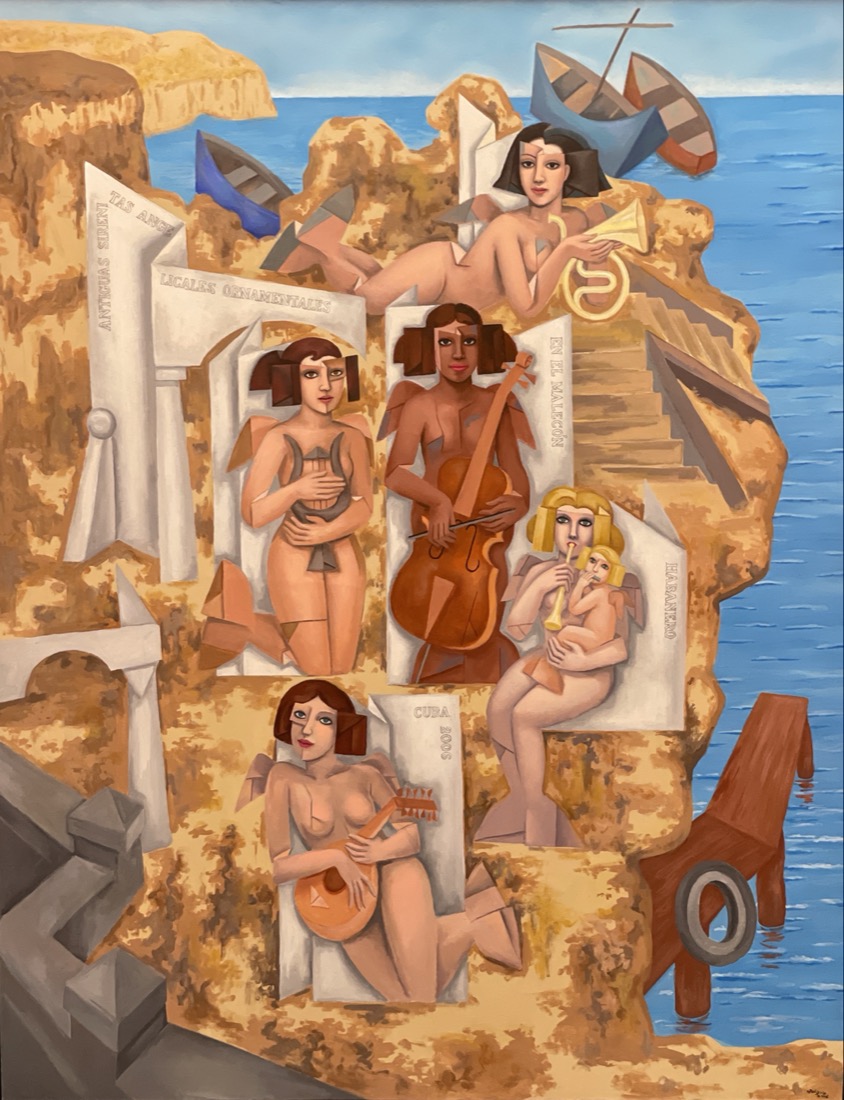


Adagio Benitez (b. 1924) was born into a working class family in Santiago de Cuba and graduated from San Alejandro National School of Fine Arts in 1949. His early paintings broached social and political issues and his subjects were often militiamen, welders, and women working in factories.
By the 1960s, he began to conceive of drawings and paintings in which the characters were made of plied paper, a kind of origami, and contrasted them with appropriations of figures of universal art. A maestro of portraits of historic figures — including José Martí, Julio Antonio Mella, Jesús Menéndez, Camilo Cienfuegos and Che Guevara — and the recreation of popular faces, Adigio favorably surprised critics and the public by experimenting with geometric shapes and allegorical representations.
He was a Professor of Merit of the Higher Institute of Art, a member of the National Council of the Association of Writers and Artists of Cuba (UNEAC) and President of Honor of the International Association of Visual Arts (AIAP). In 2002, he received the National Prize of Art Education. He was a founding professor of the National School of Arts and the Superior Institute of Art.
Benitez presented more than 30 solo shows and participated in circa 150 group exhibitions. He painted four murals in Cuba and two in Mexico. His work is featured in collections and personal exhibitions in more than 30 countries in the Americas, Europe and Asia. Dozens of his pieces are included in public and private collections in Mexico, Spain, Colombia, Hungary, Czech Republic, Russia, Sweden, Ecuador, Iraq, Italy, the United States, Chile, Argentina, Canada, and the National Museum of Fine Arts in Havana.